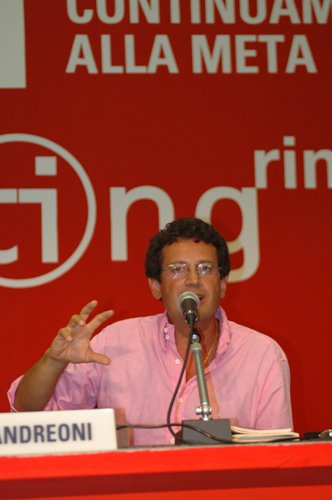The Unheard Beethoven coordinated by Roberto Andreoni
“The real artist is not haughty at all: unfortunately he sees that art has no borders. Obscurely, he feels how far off he is from his goal, and perhaps, while he is admired by others, inside himself he is cross about not yet having reached that place where his best genius shines like a sun, far away”
[L. Van Beethoven – from a letter written in answer to a 10-year-old admirer]
“When it comes to classical music, the first figure that comes to everyone’s mind is Beethoven. When a new concert season starts, it is usually a programme of Beethoven’s music. If you go into a concert hall, the names of the great musicians are usually all there around the frieze, but right in the centre, more visible than the others, in gold letters: Beethoven. When the programme of a music festival is prepared, a Beethoven festival nearly always appears. What is the key piece of any piano recital? A Beethoven sonata. Or of a string quartet programme? Op.100. What do you play to commemorate the dead? The Eroica. And to commemorate a victory? The Fifth. What is played at all UNO concerts? The Ninth. Beethoven, Beethoven everywhere. Why not Bach, or Mozart, or Schumann? Because let us say it once and for all: Beethoven is the greatest composer that ever lived.”
[L. Bernstein]
“ I have never seen an artist as collected, as full of energy, as profound as Beethoven. I appreciate that he must be in a singular position with respect to the world.”
[Goethe]
Acumen, Intellect and capacity of Judgement are different and complementary aspects of the artistic creative process as this was conceived at the end of the 18th century. Acumen makes it possible to distinguish numerous distinctive traits in phenomena, Intellect puts the similarities and differences identified by acumen in relation to one another. Finally, capacity of Judgement places limits on Intellect and selects, from among the many possible combinations, only those required for the logic and internal cohesion of a work. Beethoven, still fully part of this “intellect enlightenment poetics”, nevertheless He also incarnates the romantic category of the Genius. For the latter, intuition is able to immediately depict the totality of the work, before even starting the combinatory work of Intellect, which on the one hand gradually proceeds towards the whole. In Beethoven’s poetics, intellect and genius intertwine without contrasting, and without, because of this, it being possible to say he was already a “romantic” composer.
“I change a lot, throw away and try again, until I am satisfied, then I start processing in my head, widen, narrow, push towards the acute and towards the grave and, because I know what I want, the basic concept never leaves me”
[L. Van Beethoven]
The spirit of this exhibition is “immersive”, meaning the visitor is physically surrounded by the installation; interactive, so the visitor can change the installation through his/her presence; experiential, meaning the figure of Beethoven presented in its totality through a route split into four installations: (a.) who was Beethoven? (b.) how and where did he work? (c.) Guide to listening and musical analysis (d.) “playing Beethoven”. The purpose of this interactive solution is to maintain alive the astonishment which Beethoven himself always renewed through his work. The visitor follows a path of ongoing flow, the narration of the rooms and, unlike in other exhibitions, does not wait for something to happen but, on the contrary, takes part directly, protagonist of the discovery and encounter with this great composer.
“I shall do all good possible, love truth above all else and, even before a throne, shall never betray Truth!”
[L. Van Beethoven 1792]




